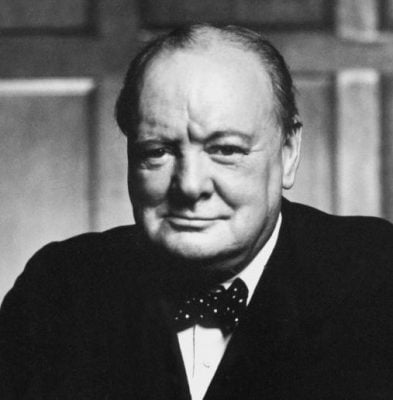Motivation is why a person acts or behaves in a particular way. It also drives people’s willingness and desire to do something. When there is motivation, there is enthusiasm. Motivation is an internal phenomenon, i.e., it is within us. It drives us to behave and act in certain ways.
The term ‘motivation’ may also refer to a set of arguments or facts we use when supporting a proposal. Look at the following sentence: “We submit the following proposal and motivation for consideration.”
In the world of business and management, motivation has a specific meaning. It is all about the factors that encourage individuals to be continually committed and interested in their jobs.
Motivational factors help people push themselves to reach a goal or objective.
Some people are easy to motivate if one offers them a financial incentive. Financial incentives include monetary rewards, bonuses, commissions, or tax deductions.
The BBC says the following regarding motivation in a business context:
“Motivation is about the ways a business can encourage staff to give their best. Motivated staff care about the success of the business and work better.”
Motivation vs. happiness
A ‘happy’ employee is not necessarily one with motivation. Although they are similar, the two words do not have the same meaning. A worker may be extremely happy but does very little work.
Motivated workers want to perform, even if they are unhappy. When motivation pushes us to reach a goal, and we reach it, we’re usually happy.
However, that happiness is just a consequence of having a sense of achievement. When what we have done pleases us, we are generally happy.
A workforce that is adequately motivated to excel will be more productive. Their sense of commitment will also be stronger. The workers will invest more of themselves in what they are doing.
Motivation vs. incentive
Although motivation and incentive may appear similar, their meanings are, in fact, different.
If I want you to ‘want what I want,’ the best way is to pay you a lot of money. Therefore, money is your incentive.
As soon as I stop paying you, you stop ‘wanting what I want.’ You only wanted what I wanted while the incentive, i.e., money, was there.
Motivation, on the other hand, is a force within you. It is a force to which you commit yourself.
People who are motivated are more generally enthusiastic about doing something for its own sake.
Perhaps because they think it is important and that their function matters. Therefore, they take pride in what they are doing.
If you want a team of people to work hard and well for you, it is possible to dangle lots of money. In other words, you can use financial incentives and achieve your purpose that way.
Workers are more effective if they care about what they do because they believe in it. In other words, because they are motivated.
-
Money is only part of it
This does not mean that money is not a motivator. In fact, it often is.
However, if you give employees more autonomy, their motivation will grow dramatically. It will also grow if you allow them to bring their own ideas into the work process.
Put simply; incentive depends entirely on the promise of something from outside, i.e., something external. Motivation, on the other hand, is inside the individual, i.e., it is internal.
If your workers have no pride in their work, their ability to perform effectively is only temporary. They will look for a position where they can derive pride from their work. In other words, they will seek employment in a place where their work makes them feel good.
Motivation vs. inspiration
Many of us regularly use the words ‘motivated’ and ‘inspired’ interchangeably. While the two terms may appear similar, there is a difference.
Motivation builds in people’s mindset. It gathers their senses and pulls them up from laziness and inactivity to achieve something, to build something. It makes people feel good about their function.
When we are motivated, we work harder and better and are subsequently more successful. People with motivation have a good sense of self-worth.
A motivated mind is highly energized – it can be taken into any direction. The direction it takes you is your inspiration.

-
Inspiration – the light-bulb
Inspiration is like that little light-bulb we see in thought clouds in cartoons – an idea that tells your mind to be creative. It shows you the path that you should follow.
If inspiration is the seed, motivation is the water. We can sow many seeds, but they will only grow with water. Inspiration does not get anywhere without motivation.
We need motivation to accomplish things. Typically, in the realm of motivation, there is a lot of ‘measuring’ – checklists, goal posts, targets, etc. Inspiration, on the other hand, is magnetic. Inspiration’s reasoning does have to make sense, i.e., you just ‘gotta do it!’
Danielle LaPorte says on her website:
“What is motivating you, i.e., pushing you?”
“What is inspiring you, i.e., pulling you?

Managers and motivation
The responsibility to motivate employees to do a good job lies with their managers. They encourage their workers to be productive and effective.
How employees are motivated depends on several factors, including their age, socioeconomic and academic level, national culture, and the availability of work elsewhere.
-
Example of national culture
In Japan, when workers call in sick, their immediate manager will probably visit them at home after work. This is a form of encouragement, i.e., the boss cares about his or her workers.
If this happened in the USA, UK, or other Western nations, the worker would probably think the manager was suspicious. The worker might wonder whether the boss only came to determine whether he or she really was ill.
If you are a manager and want to encourage productivity, you should work to make sure your employees:
- take pride in their work, feel that what they do is important and has meaning,
- believe that you will reward them for good work, and
- feel that you are treating them fairly.
A company’s culture and leadership style play pivotal roles in shaping an environment where motivation can thrive, fostering a sense of purpose and engagement among employees.
Leaders who effectively communicate the organization’s vision and recognize individual contributions can significantly amplify an employee’s intrinsic motivation, aligning personal goals with the company’s objectives.
Motivation, like intelligence or imagination, cannot be observed directly. It is inferred by observing an individual’s behavior.

Motivation theories
Researchers have put forward theories that attempt to explain motivation in human beings. These theories include Maslow’s Hierarchy of Needs Theory and Drive Reduction Theories.
-
Drive Reduction Theories
These are theories of motivation developed by Clark L. Hull (1884-1952), an American psychologist. Hull proposed that individuals’ behaviors are external displays of their desire to satisfy physical deficiencies.
He believed that people have motivation to act in a certain way in order to minimize needs and maintain a constant physiological state. For example, we consume nourishment in order to reduce our need for food, or we drink water to avoid feeling thirsty.
Hull said that a ‘drive’ is a state of tension or arousal triggered by our physiological or biological needs. These needs include thirst, hunger, sex, need for warmth, etc. In his theory, he stated that drives give rise to our motivation.
Central to the drive reduction theories is homeostasis – keeping conditions within our bodies in a state of equilibrium (maintenance of a constant internal environment).
Hull’s theories failed to explain several aspects of motivation, such as why some people fast for long periods in protest, despite experiencing extreme hunger, or why individuals continue eating even after they are no longer hungry.
-
Maslow’s Hierarchy of Needs
Abraham Maslow (1908-1970), an American psychologist, proposed – in his 1943 paper ‘A Theory of Human Motivation,’ which was published in Psychological Review – that humans are motivated by a hierarchy of needs.
- Level 1: our most basic physiological needs, including the need to drink, eat, to be safe, and have somewhere dry and warm to live in. If we do not meet those needs, our bodies cannot function properly and will ultimately fail.
- Level 2: our needs for social interaction, such as the need to belong. This need is more acute during childhood and may sometimes override the need for safety. That is why many children with abusive parents do not want to separate from them.
- Level 3: our needs for esteem, which include our desire and need for respect for ourselves and from others. Esteem presents our typical desire for other humans to accept and value us. Individuals commonly engage in a hobby or profession to gain recognition. These activities give us a sense of value or contribution. Most of us have a need for stable self-respect as well as self-esteem.
- Level 4: This is where we strive to realize our full potential – through our needs for self-actualization. Maslow once said: “What a man can be, he must be.”
Gains Sharing is an effective way to boost worker motivation. Each worker who manages to boost productivity or reduce waste gets a bonus.
Derivatives of “motivate”
The word “motivation” is a derivative of “motivate.” Below, you can see several derivatives, their meanings, and how we can use them in a sentence:
-
Motivate (Verb)
To provide someone with a reason for doing something; to encourage.
Example: “The coach’s speech was meant to motivate the players before the big game.”
-
Motivation (Noun)
The reason or reasons one has for acting or behaving in a particular way; the general desire or willingness of someone to do something.
Example: “Her motivation for studying so hard was to get into a good college.”
-
Motivated (Adjective)
Eager to do something; having a strong reason to act or accomplish something.
Example: “The students were highly motivated to complete the project due to the prize for the winning team.”
-
Motivational (Adjective)
Relating to the reason or reasons for acting or behaving in a particular way; intended to make someone want to do something.
Example: “He gave a motivational speech that left everyone feeling inspired and ready to take action.”
-
Motivating (Adjective)
Serving as a reason or incentive to do something.
Example: “The possibility of a promotion was a motivating factor for her outstanding performance.”
-
Motivator (Noun)
A person or thing that makes someone enthusiastic about doing something.
Example: “Good leadership is often a strong motivator for team success.”
-
Motivational (Adjective)
Of or relating to the process of motivating someone.
Example: “The company’s motivational tactics included bonuses and flexible work hours.”
-
Unmotivated (Adjective)
Not eager or interested to do something; lacking a motive to act or pursue an end.
Example: “Despite the opportunities available, he seemed strangely unmotivated to change his situation.”
-
Demotivate (Verb)
To make someone less eager, hopeful, or enthusiastic about doing something.
Example: “The team was demotivated by the loss, but the coach had plans to lift their spirits.”
-
Demotivation (Noun)
A reduction or lack of motivation.
Example: “The employees experienced demotivation after the company cut their benefits.”
-
Motivationally (Adverb)
In a way that relates to motivation or tends to motivate.
Example: “She spoke motivationally to her peers, encouraging them to persist despite the challenges.”
Two Videos
These two educational videos come from our sister channel on YouTube – Marketing Business Network. They explain what “Motivation” and “Financial Incentive” mean using easy-to-understand vocabulary and examples.
-
What is Motivation?
-
What is a Financial Incentive?
